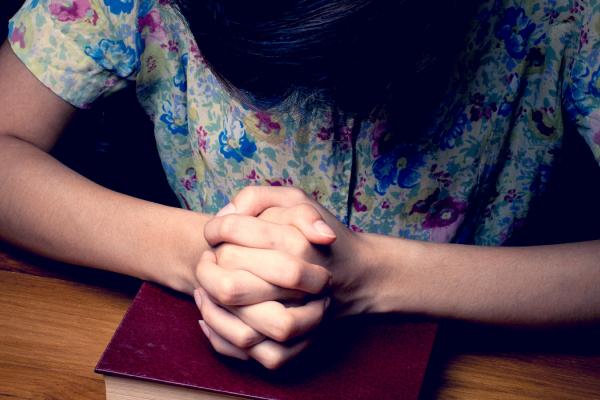Two years ago this June, I sat in an enormous, frigid convention hall in Detroit, Mich., with several thousand other Presbyterian clergy and faith leaders as our denomination voted on whether to recognize same-sex marriages. I was in a back section for observers, surrounded by other LGBTQ Presbyterians. As giant screens in front revealed that the body had indeed voted to approve marriage equality, a communal gasp filled the room. Parliamentary procedure restricted us from any loud or obvious reaction, but I and the others around me quietly embraced each other as we wept in joy and disbelief that this day had finally arrived. That night I attended a party to celebrate the news. We popped bottles of champagne and toasted to a more just future for our denomination and to the memory of those who hadn’t lived long enough to see it.
Finally, when the assembly was over and I was back home in Texas, I called my mom. While I am a vocally liberal, bisexual justice-seeker and activist, my mom is an engaged and informed lifelong conservative who believes our denomination’s political engagement contradicts the separation of church and state. For this reason, I knew that the historic votes on marriage and several other progressive issues would not be good news for her. In fact, I knew that the senior pastor of her congregation — the church I had grown up in — would leave the denomination over those votes, and that my mom might well be leaving too.
Across the vague static of our cell connection, I heard the emotion in her voice as she admitted, “I just feel like my church is leaving me behind.” I shook my head, thinking to myself, “But we don’t want to.” Church had always been a shared home for us, but I wondered if we would ever both feel home in the same church again.
I’ve thought about those experiences a lot this month, as I’ve followed the news from the United Methodist Church’s General Conference, in Portland, Ore. As tension around LGBTQ justice within the UMC reached fever pitch last week, talk turned to the possibility of a denominational split. These dynamics felt all too familiar to me. I watched with a sense of déjà vu as people were assumed into one of three groups: those who would sooner leave the church than embrace LGBTQ equality, those who are ready for a denomination that will fully embrace LGBTQ folks no matter what, and those who say they are sympathetic to everyone, but that unity is more important than anything.
Believe it or not, it is this last group — and not the first — that most infuriates me. Every few months, it seems, a new think-piece pops up in my Facebook newsfeed claiming that conservative and progressive Christians alike have lost sight of one another’s humanity and forgotten that Christ calls us to be united above all. These pieces, written by self-proclaimed moderates, always highlight the author’s close relationships with folks on both sides of aisle, and lament their friends’ inability to love each other in the face of difference. The implication is that those of us who stand firmly in one camp or another do not truly care for those on the other end of the spectrum.
At best this is harmful ignorance, and at worst it’s destructive, intentional oversimplification. Of course I care about people on the other side — they’re people I love. I can’t speak for everyone, but many of the LGBTQ Christians I know have loved ones who fundamentally disagree with them about how the church should look and what justice means: their grandmother who taught them her favorite Bible verses when they were young; their childhood church that first nurtured them in faith; the pastor who inspired their call.
I care deeply about church unity because I know that, on some significant level, it is a matter of mothers and daughters, families and communities, and what holds us together. But we cannot claim to create unity so long as it is contingent on keeping some people in the margins and denying justice. The recent shifts in polity around LGBTQ inclusion have highlighted this tension, but we have always been claiming unity at the expense of others — whether because of race or immigrant status or mental health. As long as we believe unity is something we must build and then cling to, we will never find it.
In my Presbyterian tradition, we consider unity one of the “marks of the church” — an inherent quality imbued in the church by Christ. It isn’t a goal for us to achieve, but a divine reality that we must recognize and try live into. What binds us together in one church is not denomination affiliation or polity — it’s the Jesus who loves us all without regard to any of those things.
My mom and I disagree about a lot of things, but we agree that faith is often about holding onto two seemingly paradoxical truths at the same time. In our broken world and our human churches, sometimes separation is the best choice, even if you’re committed to unity. Sometimes we argue and even part ways, not because we don’t care, but because we do. In such times, faithfulness means trusting that what divides us — on any given day or even for a lifetime — will never be stronger than the God who binds us together.
Got something to say about what you're reading? We value your feedback!

